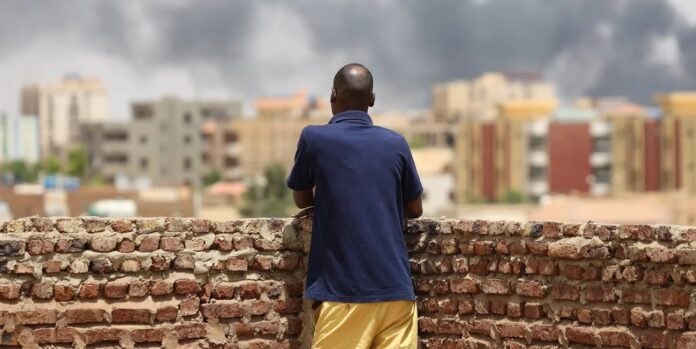In the heart of Sudan’s war zones, the smell of boiling animal feed now drifts from household fires — not as fodder for livestock, but as the only meal desperate families can find. Children, women, and men in El Fasher are consuming what was never meant for human mouths, a stark symbol of a nation buckling under hunger and violence.
The United Nations says the crisis is now “catastrophic,” with El Fasher suffering the worst of it. Food has become so scarce and unaffordable that the UN Office for the Coordination of Humanitarian Affairs (OCHA) warns that more lives are hanging by a thread.
“With increasingly alarming food shortages and spiraling prices, people in El Fasher are reported to be resorting to eating animal feed in what is an increasingly catastrophic situation,” UN Deputy Spokesperson Farhan Haq said Thursday at the UN Headquarters in New York.
The News Chronicle gathered that figures tell the story of desperation: the cost of basic goods in El Fasher has soared to nearly $1,000 per household each month, with food alone accounting for more than $700 — over eight times the price of similar items elsewhere in the country.
“These steep costs, coupled with the siege and lack of aid delivery by road for over a year, have left thousands facing starvation,” Haq added, warning that securing the pause in hostilities, as urged by the UN Secretary-General and the Emergency Relief Coordinator, is “more important than ever.”
On the ground, OCHA’s Director of Operations and Advocacy, Edem Wosornu, described a landscape of despair: people trapped by fighting, displaced by violence, or returning to communities reduced to rubble. She called for immediate, unrestricted humanitarian access and urgent support for those “on the frontlines of hardship.”
The crisis is taking a particularly brutal toll on women and girls.
“This crisis is a gender emergency,” said Salvator Nkurunziza, UN Women’s representative in Sudan. “Displaced women and girls can be subject to the risks of exploitation and abuse, especially during the delivery of aid, where protection mechanisms are weak or absent in some locations.”
With no food trucks arriving for over a year and prices rising beyond imagination, Sudan’s hunger crisis is no longer a warning — it is already here, measured in the empty bowls of families forced to eat what once fed their animals.



